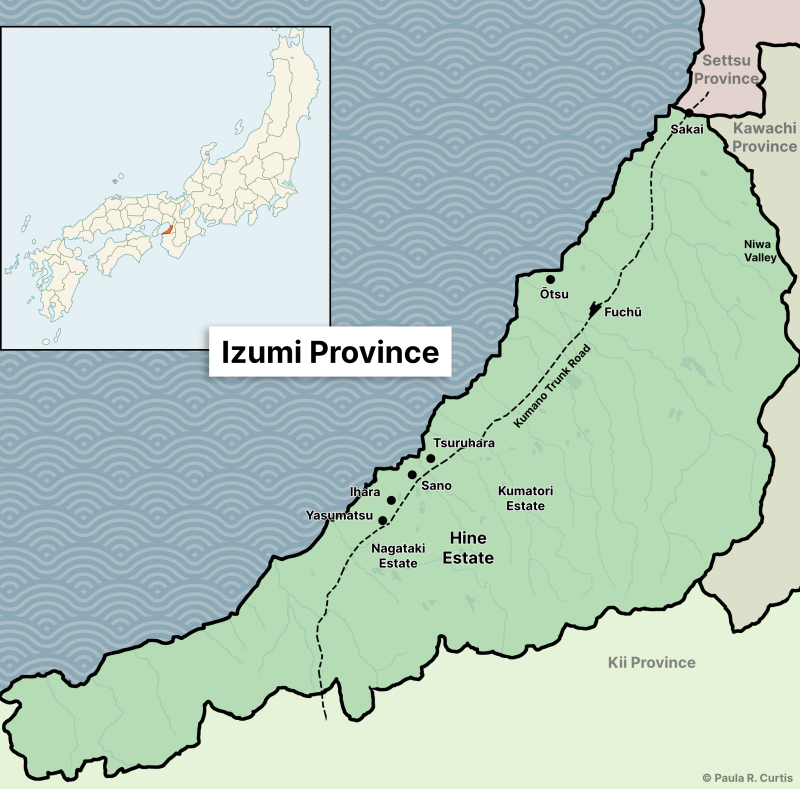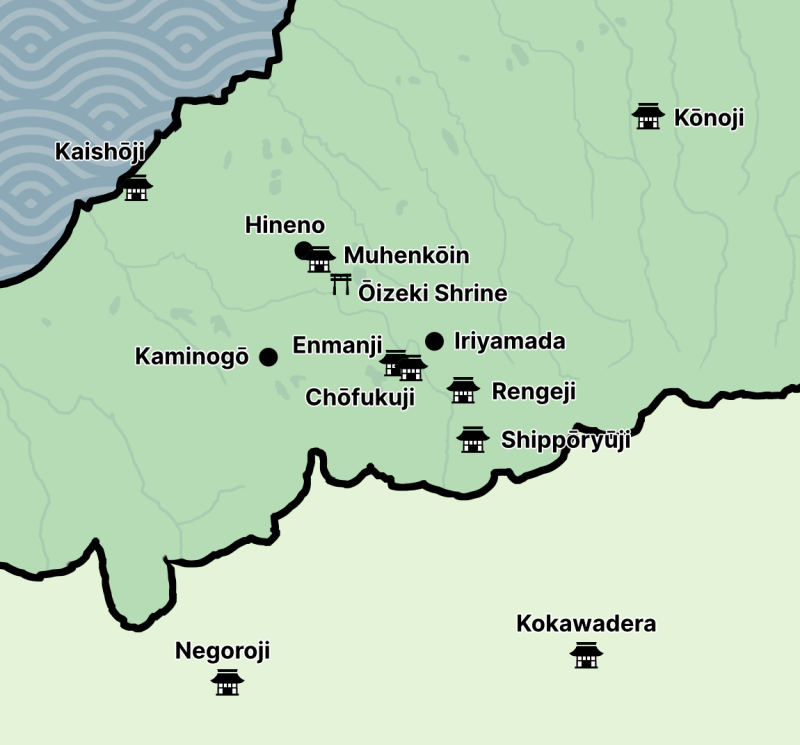
Hine Estate and its Environs

Located as it was in Izumi, one of the five "Home Provinces" (goki 五畿) of the Kinai 畿内 region, Hine Estate was in central Japan, less than 100 kilometers from Kyoto and falling within the area still under the control (if questionable at times) of the Muromachi shogunate. This was a critical factor in Kujō Masamoto's decision to travel to the family estate, supported as he was by the de facto head of the shogunate, Hosokawa Masamoto. Less favorable to Masamoto was the estate's location relative to the two powers most determined to replace Kujō control of the land with their own: the Izumi military governors, to the north in Sakai; and Negoroji, the powerful Buddhist temple, to the south in neighboring Kii Province. Both were close enough to send forces in less than a day to intimidate or intrude in local affairs.
At the turn of the sixteenth century, Hine Estate consisted of two villages, Hineno and Iriyamada. The former lay along the plain and was bounded on the north by at least six saucer ponds formed by villagers in previous centuries—evidence of the potential for bountiful harvests of rice and wheat. The latter, as the name suggests, was a village of "paddies within the mountains." In fact, it was a set of four hamlets set along a narrow mountain valley, and limited arable for rice paddies meant that other products--including firewood, mushrooms, and tea—were critical to the villagers' economic wellbeing.

The topographic differences between Hineno and Iriyamada shaped not just farming and commercial activities, but also conflict. Simply put, the mountains around Iriyamada offered security and protection that was denied Hineno on the plain. Kujō Masamoto himself realized this just days after his arrival in Izumi, when he moved his residence from Hineno to Iriyamada, and did so for "reasons of safety." Furthermore, the natural defenses in the mountains made the villagers there much more inclined to resist intrusions with force, whereas Hineno villagers repeatedly stated that their only recourse was to flee in the face of attack.